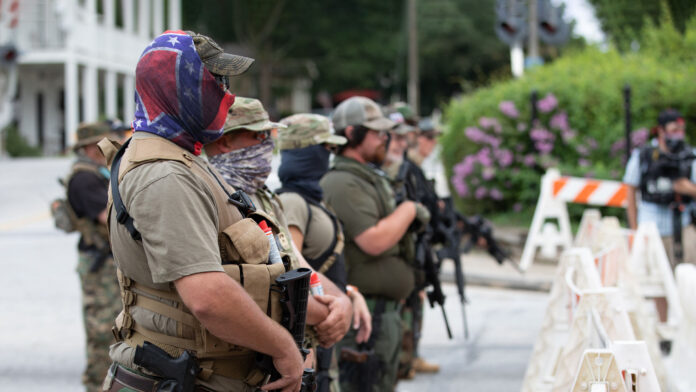Authors: Seth G. Jones, Catrina Doxsee, Nicholas Harrington
Affiliation: Center for Strategic and International Studies
Organization/Publisher: Center for Strategic and International Studies
Date/Place: October 22, 2020/USA
Type of Literature: Report
Number of Pages: 12
Link:https://www.csis.org/analysis/war-comes-home-evolution-domestic-terrorism-united-states
Keywords: Extremism, Domestic Terrorism, Antifa, White supremacy, Security Dilemma.
Brief:
There are concerns of domestic terrorism as cases have notably increased and become more daring, as extremists plotted to kidnap Michigan governor Gretchen Whitmer. The Department of Homeland Security has designated white supremacist extremists (WSEs) as the most persistent threat in its October 2020 assessment, followed by anarchists and anti-authority ideologies. Yet it is difficult to comprehend the scale of the threat due to the FBI not releasing data on these groups. The data provided by the analysis shows that 67% of terrorist plots in 2020 are by WSEs, along with Antifa/anarchists making up to 20%. Terrorism in the US does not collectivize in organizations, but operates in a decentralized, leaderless, resistance fashion. Terrorists do not figure with any major political parties and trends; they are still on the fringes of the political mainstream. The four major perpetrators (in order) of domestic terrorism are the following: far-right, far-left, Salafi-jihadi, and others. Both the far-right and far-left have the lion’s share in plots and attacks, especially targeting demonstrators and law enforcement. Domestic terrorism is projected to increase, especially after the November 2020 elections. Far-right and far-left will feed each other’s fears and may increase attacks based on their mutual security dilemma. A result of this is the possible increasing acceptance of formerly fringe groups into mainstream politics, such as more left wingers accepting the “we told you” rhetoric from groups like Antifa. It is also expected to see a shift to organized groups rather than decentralized ones, but this leaves extremists more exposed to infiltration and tracking by law enforcement.
By: Omar Fili, CIGA Research Assistant




